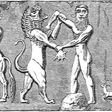
Hypnosis
In this episode, Megan and Frank examine hypnosis. What evidence is there that hypnosis is a real phenomenon, and why does hypnosis have a dubious reputation? Does hypnosis alleviate pain, or just mask it? What is the nature of hypnotic consciousness? And does hypnosis prove there’s no true self? Thinkers discussed include: William James, Ernest and Josephine Hilgard, Derek Parfit, Sigmund Freud, and Tim Bayne.
-----------------------
Hosts' Websites:
Email: philosophyonthefringes@gmail.com
-----------------------
Bibliography:
Uncovering the new science of clinical hypnosis
The Morpheus Clinic for Hypnosis
Hypnosis and Conscious States: The Cognitive Neuroscience Perspective
Hypnosis to quit smoking: What to know
Neural functional correlates of hypnosis and hypnoanalgesia: Role of the cingulate cortex
Hypnotic Suggestion and the Modulation of Stroop Interference
Hypnosis in the Relief of Pain
Mary Haight, Hypnosis and the Philosophy of Mind
Hypnosis in History - American Hypnosis Association
Hidden observer - Oxford Reference
Hidden Observer APA Dictionary
The split brain: A tale of two halves | Nature
Derek Parfit. Here's why he mattered. | Vox
Tim Bayne, Hypnosis and the unity of consciousness
Tim Bayne - The Unity of Consciousness | Oxford Academic (oup.com)
Bilingual “I Hear a Pickle/ Oigo Un Pepinello” (kidizen.com)
-----------------------
Cover Artwork by Logan Fritts
-------------------------
Music from #Uppbeat (free for Creators!):
https://uppbeat.io/t/simon-folwar/neon-signs
License code: DC5U47IEPMLOLTFG



















